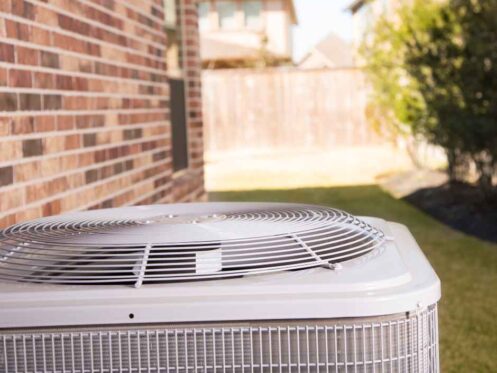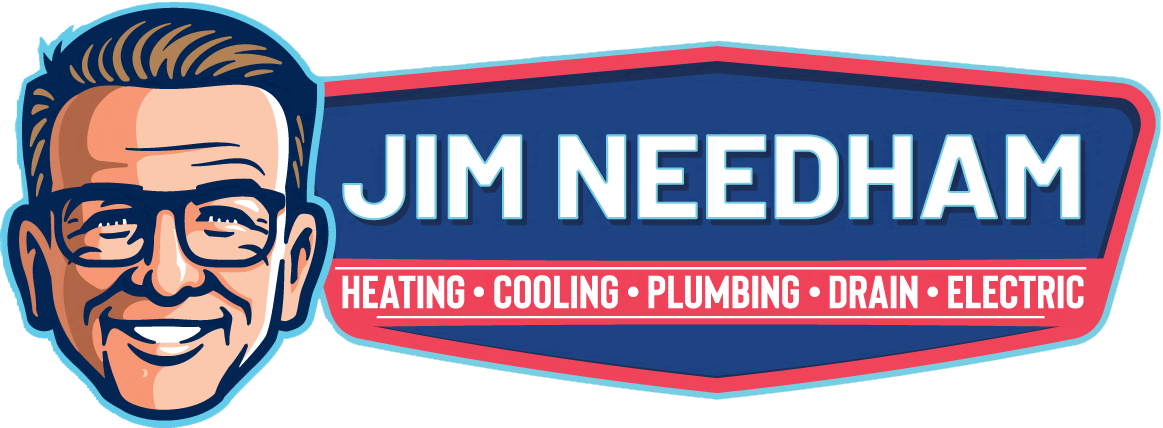Noticed water pooling around your air conditioner? While some moisture is normal, puddles or dripping inside your home are signs of a problem that needs your attention. A leaking air conditioner doesn’t just affect your comfort—it can lead to structural damage, mold growth, and higher utility bills. In the hot, humid summers of Denver, your AC works overtime, making it more prone to leaks if not properly maintained. Many homeowners are surprised to find that water damage near their AC unit often points to a fixable problem that was left unchecked for too long. This blog covers why air conditioners leak, what warning signs to look for, and what you can do to fix it before it turns into a bigger issue.
What Causes an Air Conditioner to Leak Water?
Your air conditioner is designed to remove moisture from the air as it cools your home, and normally, this moisture drains safely outside through a condensate line. But when something goes wrong—like a clog, a mechanical failure, or dirty filters—that moisture has nowhere to go. Instead, it builds up and overflows, causing leaks around your unit or in other parts of your home.
Leaking water from an AC system isn’t just a cosmetic concern. It can damage your drywall, flooring, or insulation and may lead to mold growth if not addressed quickly. And because leaks usually mean something inside your system isn’t working right, your cooling performance may also take a hit.
Signs Your AC Is Leaking Water
Water leaks often show themselves before they become obvious. Catching the signs early can help prevent expensive repairs.
Common Signs
If your AC is leaking, you may notice signs like:
- A puddle of water under or near the indoor air handler
- Damp spots on the floor, wall, or ceiling near the unit
- Dripping sounds or visible water coming from vents
- A musty smell around your AC system, especially when it runs
- Reduced airflow or inconsistent cooling
- Visible mold near vents or the indoor unit
These signs usually start subtly but can quickly become more obvious—and damaging—if ignored.
Top Reasons Your Air Conditioner Is Leaking
One of the most common causes of a leaking AC is a clogged condensate drain line. Dust, dirt, or algae can block this narrow pipe, preventing water from draining. Instead, it backs up and spills into your home.
A dirty air filter is another frequent culprit. When airflow is restricted, the evaporator coil can freeze. Eventually, that ice melts—and the excess water has nowhere to go.
Low refrigerant levels can also cause the coil to freeze, leading to the same outcome. Alternatively, a damaged drain pan—which is supposed to catch and direct moisture—can develop cracks or rust and fail to do its job.
Lastly, improper installation or an unevenly placed unit can cause water to collect and overflow in ways it shouldn’t.
How to Fix a Leaking Air Conditioner
You may be able to fix minor issues yourself—but some leaks call for a licensed HVAC technician.
DIY Fixes for Minor AC Leaks
If you notice water around your air conditioner, start with the basics. Check your air filter. If it’s dirty, swap it out. This may solve the problem by improving airflow and preventing freezing. Next, make sure your unit is level; uneven positioning can prevent water from draining correctly.
You can also try to clear the condensate drain line with a wet/dry vacuum. If you see water flowing again, the clog may have been your issue. Double-check your thermostat settings, too—short cycling or constantly running the system can create more moisture than the unit can handle.
While these simple steps may help, they aren’t guaranteed to solve deeper problems.
When You Should Call a Professional HVAC Technician
If you’ve tried changing the filter and checking for clogs but still see signs of water around your unit, it’s time to call an HVAC technician. Continuing to run your AC while it’s leaking can lead to further damage—and potentially unsafe conditions like mold or electrical hazards.
Professionals can safely access and clean the inside of your unit, flush or repair the drain line, inspect the evaporator coil, and check refrigerant levels. If the drain pan is cracked or rusted, they can replace it. They’ll also look for any mechanical or installation issues that could be causing the leak.
If your system hasn’t been serviced in over a year, a seasonal tune-up could uncover not just the source of the leak, but also improve overall efficiency and comfort.
How to Prevent Water Leaks from Your Air Conditioner
Preventing an AC leak starts with routine care. Schedule HVAC maintenance at least once a year to keep your system clean and running smoothly. Technicians can inspect and flush the drain line, check refrigerant levels, and clean the evaporator coil before any of these components cause problems.
Changing your air filter every 1–3 months also helps. It supports airflow, reduces strain on your system, and prevents ice buildup. Installing a float switch on your drain pan can provide an added layer of protection—it shuts off your system automatically if water levels get too high.
Keeping the area around your unit clear of dust, insulation, and debris helps too. A clean system is a more efficient and reliable system—and one that’s far less likely to leak.
Schedule Expert AC Repair
A leaking air conditioner might start with a drip, but it can end in major repairs if you don’t take action. Whether it’s a clogged drain line, a frozen coil, or low refrigerant, water leaking from your AC is a red flag that something isn’t working right. Addressing it early helps protect your home and your comfort—especially during the summer heat.
Don’t wait until a small puddle becomes a major headache. Jim Needham Heating Cooling & Plumbing in Denver is here to help with expert air conditioning repair, maintenance, and diagnostics to get your system running properly again.
Contact Jim Needham Heating Cooling & Plumbing today to schedule an AC inspection and stop leaks before they start!

